" Brexodus "...

EU net migration to the UK has fallen since the vote, but still...
Around 3.7 million people living in the UK are citizens of another EU country, a record number. That’s about 6% of the UK population, and is according to the latest figures covering the 12 months up to June 2017—the year following the EU referendum.
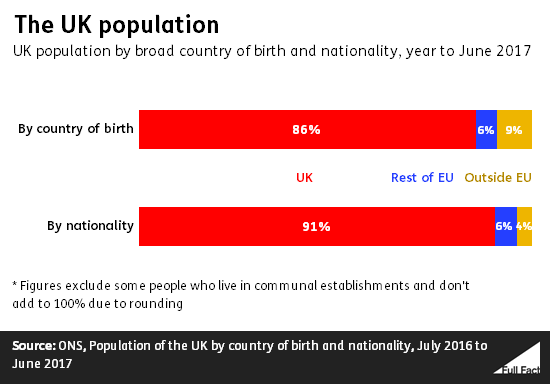
That compares to 3.4 million in the year before the referendum. So overall, the other EU citizen population in the UK has gone up by an estimated 275,000 in the 12 months since the Brexit vote, an increase of 8%.
This may represent a slight slowing down in the rate of EU population growth, but the available figures aren’t completely clear. We know the population of other EU nationals in the UK increased by about 13% between 2015 and 2016, although some of that period overlaps with the referendum itself.
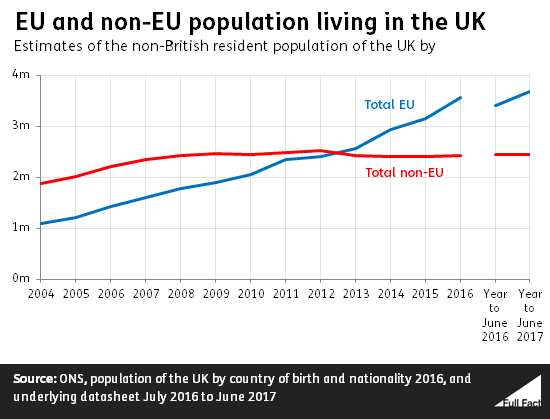
In any case, there’s little evidence yet that EU citizen population growth has changed trend since the referendum vote last year.
EU net migration to the UK has fallen since the vote, but still positive—more EU citizens are entering than leaving
In the year before the referendum, net migration of citizens of other EU countries was estimated at 189,000. In other words, many more EU citizens immigrated to the UK than emigrated from it.
In the year since, it fell to an estimated 107,000 and in the year to September 2017 it’s estimated to have fallen to 90,000.
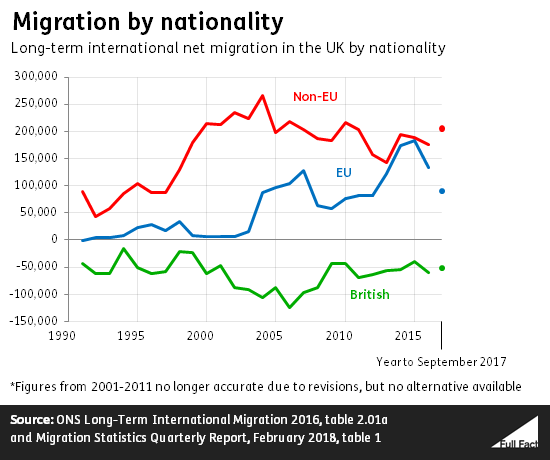
If you look specifically at EU citizens emigrating abroad, around 95,000 are thought to have emigrated in the year before the referendum, increasing to 123,000 in the year after, and 130,000 in the year to September 2017.
So both sets of figures show a marked cooling off in the EU immigration figures, although it remains the case that more come to the UK than leave.
There are a record number of EU workers in the UK, but the rate of increase has slowed down
There are around 2.3 million citizens of other EU countries in employment in the UK, using the latest figures for October to December this year. That’s slightly lower than in the previous quarter (which was a record figure). It also represents a marked slowing down in the rate of growth we’ve seen in recent years.
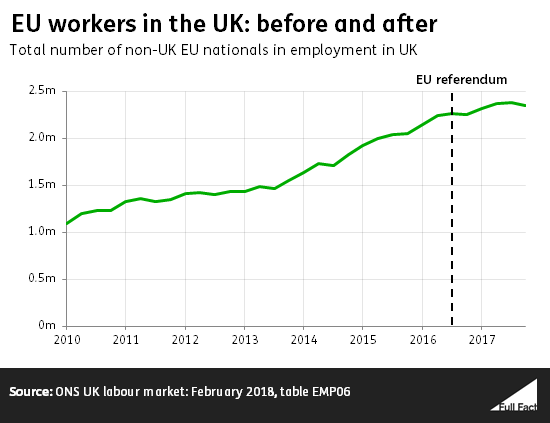
The number of EU citizens in work grew by 12% in the year leading up to the referendum, but it only grew by 6% in the year after.
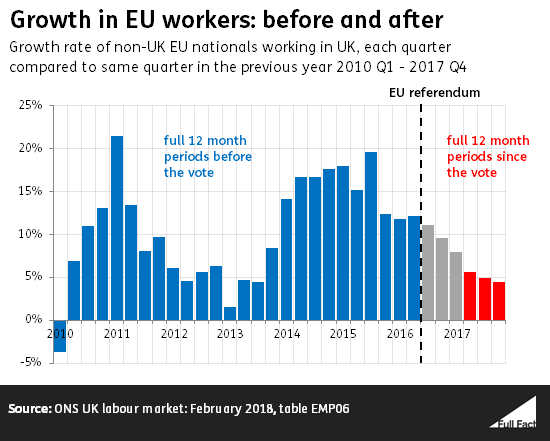
One of the biggest changes is among workers of the ‘A8’ EU countries—mainly central European countries which joined the EU in 2004, like Poland and the Czech Republic. Figures suggest the growth in their numbers has stalled.
This slowdown actually started before the referendum: worker growth in 2016 before the referendum was less than half what it was in 2015.
Citizens of other EU countries are more likely to be workers than ever before
Another change since the referendum vote is that EU citizens who are here are more likely to be in some kind of work.
The employment rates of EU citizens—in this case the proportion of people aged 16-64 who are in work—have risen across the board since the referendum. That includes citizens of the A8 central European countries, those from Romania and Bulgaria, and those of older EU member states like France and Germany. It also follows growth in the employment rate of UK citizens.
Overall, 81% of EU citizens in the UK of that age group are thought to be in work.
There are any number of reasons why this might be the case, but a good theory is that fewer citizens of other EU countries are immigrating to the UK without a job in the first place.
That’s because immigration estimates suggest that as well. 47% of EU immigrants currently say their main reason for coming is because they have a definite job lined up—a very high proportion by historical standards. Meanwhile the proportion of citizens coming looking for work has fallen from 31% of immigrants in the year before the referendum to 16% of those in the year to September 2017.
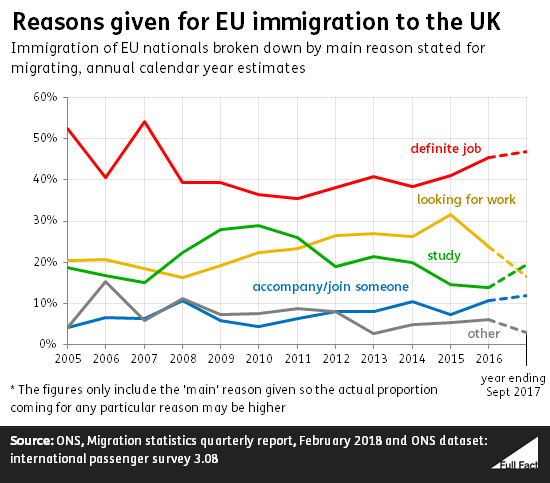
Polish citizens make up the bulk of non-British EU citizens living in the UK
Of the 3.7 million EU citizens living in the UK, an estimated one million are Polish nationals, the largest single nationality from the rest of the EU. They’re followed by an estimated 358,000 Romanians and 348,000 Irish nationals.
These figures aren’t certain: they’re based on a survey of households and that means there’s a margin for error for the figure for each nationality. Polish, Romanian and Irish citizens are clearly the most numerous, but further down the list, the ‘rank order’ of nationalities isn’t reliable.
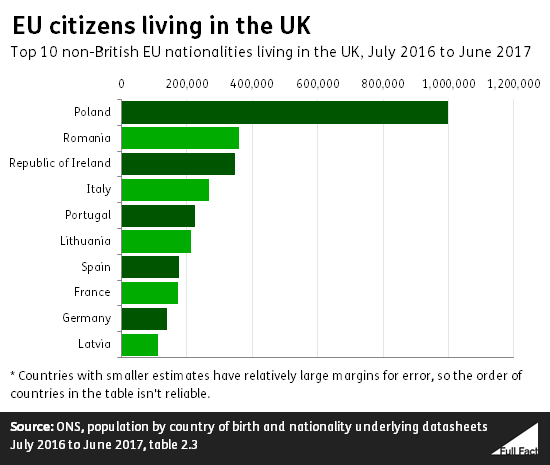
Isn't it nice to have the whole picture?
We rely on your donations to continue and grow our factchecking efforts - to help us maintain our independence we need 1000 donors to give £10 a month. We are currently at 502 - please help Full Fact grow.
/Full Fact
By Joseph O'Leary




 del.icio.us
del.icio.us Digg
Digg

Post your comment